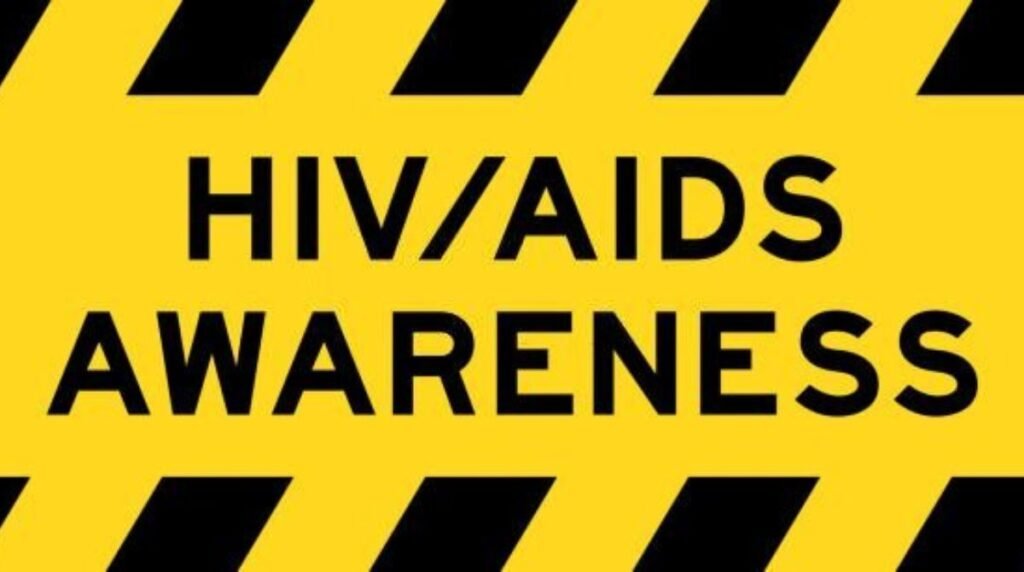When it comes to the Human Immunodeficiency Virus (HIV), knowing how it spreads is paramount to prevention and raising awareness. HIV transmission occurs through specific bodily fluids that carry the virus. Let’s delve into the various modes of transmission that you need to be aware of:

The following activities transmit HIV:
- Vaginal or anal sex with someone who has HIV without using a condom or taking pre-exposure prophylaxis (PrEP) medication
- Sharing syringes or needles with someone who has HIV
- Pregnancy, childbirth, or breastfeeding from a mother with HIV
- Receiving blood transfusions or organ transplants from a person with HIV (rare now due to rigorous testing)
- An HIV-contaminated needle, like those used by healthcare workers, can cause transmission when it punctures the skin.
- Oral sex with someone who has HIV (low risk, but possible)
HIV Symptoms
Early HIV signs: fever, sore throat, fatigue, muscle pain, joint discomfort, swollen lymph nodes. These might come with a rash and oral ulcers. Untreated HIV harms immune system, leading to weight loss, chronic diarrhea, and more infections. It’s vital to seek medical attention for proper diagnosis and care. AIDS is the final stage of HIV infection.
Difference between HIV and AIDS
HIV (Human Immunodeficiency Virus) is the virus that causes AIDS (Acquired Immunodeficiency Syndrome). Advanced HIV weakens immune system, making individuals vulnerable to infections, cancers, and progressing to AIDS.
HIV Full Form
HIV stands for Human Immunodeficiency Virus.
Causes of AIDS
HIV impairs immune system, causing infections and cancers, resulting in AIDS development.
HIV Test
The HIV test checks for antibodies in blood or oral fluid to detect infection. Antibodies may take weeks to form, so repeat testing might be advised. Rapid tests can provide results within minutes, but they typically have a higher chance of incorrect results .
Is HIV Curable?
There is no known cure for HIV. However, with proper medical treatment, people with HIV can manage the virus and live relatively healthy and long lives. HIV treatment involves taking antiretroviral therapy (ART) medication. ART lowers viral load, aids immune recovery, and minimizes HIV transmission risk to others.
How Quickly Can HIV be transmitted?
HIV transmission time varies. Antibodies develop within weeks to months, so an infected person might not test positive immediately. When antibodies are present, HIV can be transmitted in sexual fluids and blood. Using condoms, PrEP, and ART meds can greatly reduce the risk of HIV transmission.
Can You Get HIV from Saliva?
Transmitting HIV through saliva is very unlikely due to low virus concentration. Few cases globally occurred due to special conditions like blood in saliva and mouth sores. Although risk is low, avoid sharing items like toothbrushes, razors, etc., with possible blood traces.
Can You Get HIV in 20 Seconds?
HIV can be transmitted through brief, unprotected sex or needle sharing, with increased risk based on contact duration and intimacy. The risk of transmission is low, especially if the person with HIV has an undetectable viral load.
How Much Blood is Needed to Transmit HIV?
The amount of HIV-infected blood needed to transmit the virus to another person is very small. In fact, only a tiny amount of blood is needed for HIV to be present to infect another individual. This is why sharing needles, blood transfusions, or organ transplants with an infected person can transmit the virus .

HIV Transmission Through Kissing
HIV transmission risk through kissing is very low as saliva lacks sufficient virus to infect others.
Can You Catch HIV from Someone Giving You Oral?
Oral sex carries a lower HIV risk compared to vaginal or anal sex. If an infected person has open sores or cuts in their mouth, there is a higher risk of transmission. Using a barrier method such as a dental dam or a condom during oral sex can greatly reduce this risk.
How Much Saliva is Needed to Transmit HIV?
HIV transmission risk via saliva is low; a notable amount is needed for concentrated virus transmission. However, since the risk is never zero, it is still advisable to avoid direct exposure to other people’s saliva.
Infectious Disease Awareness and Prevention
With over 25 years of dedicated experience, I, Dr. Yuvraj Monga, have been at the forefront of spreading awareness about infectious diseases and their complexities. My journey involves educating individuals on prevention strategies while providing hiv counseling and effective treatments. My impact extends not only across India but also reaches individuals from various corners of the world, seeking treatment and guidance.
Seeing individuals transform into informed fighters against viruses and developing the strength to combat infections brings me immense joy. Guiding them towards a path of optimal health and imparting accurate knowledge is not just a responsibility but a privilege of being a healthcare provider. The gratification I derive from this profession is deeply fulfilling.
If you’re determined to wage a battle against viruses and wish to live a healthy life, I invite you to connect with me. Call 8010977000 to initiate the procedure and take your step towards a virus-free life. Remember, your journey to well-being starts with informed decisions and proactive actions.
Sources:
